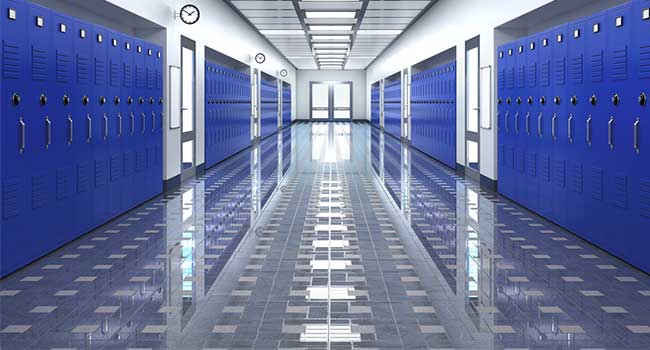
New Parkland School to be Built like a Fortress
A new charter school just miles from Marjory Stoneman Douglas could be the most advanced campus in terms of security in the state.
- By Sydny Shepard
- August 07, 2018
Parkland, Fla. has been at the center of the school security debate since an ex-student walked onto the campus of Majory Stoneman Douglas High School and killed 17 people. Since the shooting, law makers, activists and concerned parents have been calling for boosted security on campus. A new proposed school could be what they have been asking for.
Somerset Academy Parkland, a school that first submitted its application to the city in 2014 to create the Somerset Academy at Parkland Charter School for grades K-12, has recently detailed the kinds of security features we can expect to see on campus if the plan is approved.
The two-story charter school, which would open just a few miles from Majory Stoneman Douglas, would have a six-foot fence around the property, as well as an eight-foot non-scalable fence surrounding the building. Bollards would prevent a car from driving into the school and surveillance cameras would be monitoring live with a seven-day loop, Michael Moskowitz, the school's attorney said.
The lobby of the building would have bullet-resistant glass and the school would enlist security assistants to check IDs as students and faculty came into the building, passing through two bullet-resistant doors before making it into the part of the building where the classrooms are. These rooms will also be outfitted with bullet-resistant doors and teachers will be required to keep their doors locked at all times.;
The school will also employee uniformed police officers.
Last winter, Somerset Academy, which operates more than 60 schools in Florida, Texas, Nevada and Washington D.C., proposed the two-story school of nearly 98,000 square-feet for grades kindergarten through eighth grade.
The plan was initially turned down at Planning & Zoning in November, but the City of Parkland's staff has given its approval to this latest plan, which is up for consideration by the city's Planning & Zoning Board.
If the school is approved, Moskowitz said it could be open by August 2019.
About the Author
Sydny Shepard is the Executive Editor of Campus Security & Life Safety.